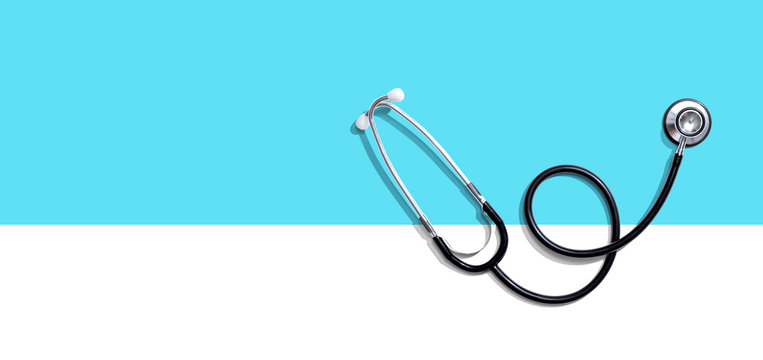How to Excel as a Medical Science Liaison in Today's Market
How to Excel as a Medical Science Liaison in Today's Market
Blog Article

In today's competitive landscape of pharmaceutical and biotechnology industries, the role of a Medical Science Liaison is becoming increasingly vital. As a bridge between the science of medicine and the art of patient care, these professionals are tasked with communicating complex scientific information to healthcare providers and stakeholders. Their unique position enables them to support the advancement of innovative therapies while ensuring that the needs of patients and the healthcare community are met.
To excel as a Medical Science Liaison, one must not only possess a strong scientific background but also hone essential skills such as effective communication, strategic thinking, and relationship building. As the market evolves, driven by rapid advancements in research and technology, the expectations for Medical Science Liaisons continue to grow. Understanding the nuances of this role and developing the right competencies can significantly enhance success in this dynamic field.
Key Skills for Success
To excel as a Medical Science Liaison, strong communication skills are essential. This role requires the ability to convey complex scientific information to diverse audiences, including healthcare professionals and internal stakeholders. A successful MSL must articulate key data in a manner that is both engaging and easy to understand, ensuring that the intended message resonates with various audiences. Building rapport and establishing trusted relationships plays a crucial role in facilitating effective dialogue and collaboration.
Another vital skill is scientific expertise. A deep understanding of the therapeutic area, including current research, emerging therapies, and clinical data, is necessary to provide valuable insights and support to the medical community. MSLs must stay updated with industry trends and advancements, which enables them to act as knowledgeable resources for their partners. This expertise also enhances credibility when presenting scientific information and addressing inquiries from healthcare professionals.
Lastly, strategic thinking is a key competency for a Medical Science Liaison. In this role, it is important to develop and implement strategies that align with the company’s objectives while addressing the needs of healthcare providers. This involves identifying opportunities for collaboration, anticipating challenges, and planning effective interventions. MSLs who can think strategically will be better equipped to navigate the complexities of the healthcare landscape and drive impactful results.
Medical Science Liaison Training
Navigating the Industry Landscape
The role of a Medical Science Liaison is heavily influenced by the evolving dynamics of the healthcare and pharmaceutical industries. Understanding the latest developments in these fields is crucial for MSLs to effectively communicate scientific data and foster productive relationships with healthcare professionals. This requires staying updated on new drug approvals, emerging therapies, and changes in regulations that may impact clinical practices. MSLs should engage in continuous education and networking to adapt to these shifts and understand how they affect their specific therapeutic area.
Additionally, the competitive landscape is intensifying as more companies recognize the value of MSLs in their strategic framework. As a result, MSLs must differentiate themselves by developing a strong personal brand and honing their expertise in specific therapeutic domains. This includes gaining insights into key opinion leaders in their area, understanding their needs, and tailoring interactions accordingly. Building a reputation as a trusted resource is essential for MSLs to be seen as valuable partners by both their internal teams and external stakeholders.
Finally, collaboration plays a crucial role in navigating the complexities of the industry. MSLs should work closely with cross-functional teams, including sales, marketing, and research and development, to ensure that scientific information is effectively aligned with business objectives. This collaboration enhances the MSL's ability to communicate nuanced medical and scientific information, fostering a unified approach to addressing healthcare needs. Embracing teamwork and synergy can significantly improve the impact MSLs have on the healthcare community, leading to better patient outcomes and a strengthened professional presence within the industry.
Building Strong Relationships
A crucial aspect of excelling as a Medical Science Liaison is building and nurturing strong relationships with key opinion leaders and healthcare professionals. This trust is established through consistent communication, demonstrating empathy, and understanding their unique needs and challenges. Active listening and being genuinely interested in their perspectives foster an environment where they feel valued and respected. By partnering effectively with these individuals, you not only enhance your credibility but also position yourself as a reliable resource for valuable information and support.
Regular face-to-face meetings, virtual interactions, and participation in conferences can greatly enhance these relationships. It is essential to remain accessible and responsive, ensuring that you are always available to provide insights and answer questions. Personalizing your approach and tailoring your discussions based on the specific interests and research areas of the healthcare professionals will leave a lasting impression. The more you engage with them, the stronger the connection you will form, which can lead to fruitful collaborations in the future.
Lastly, maintaining these relationships requires ongoing effort and communication. Periodic follow-ups and sharing relevant updates or research can help keep the dialogue open and showcase your dedication to their work. Showing appreciation for their time and insights is vital in reinforcing the bond you have built. By prioritizing relationship-building, you enhance your role as a Medical Science Liaison and contribute significantly to the advancement of medical knowledge and patient care in your field.
Report this page